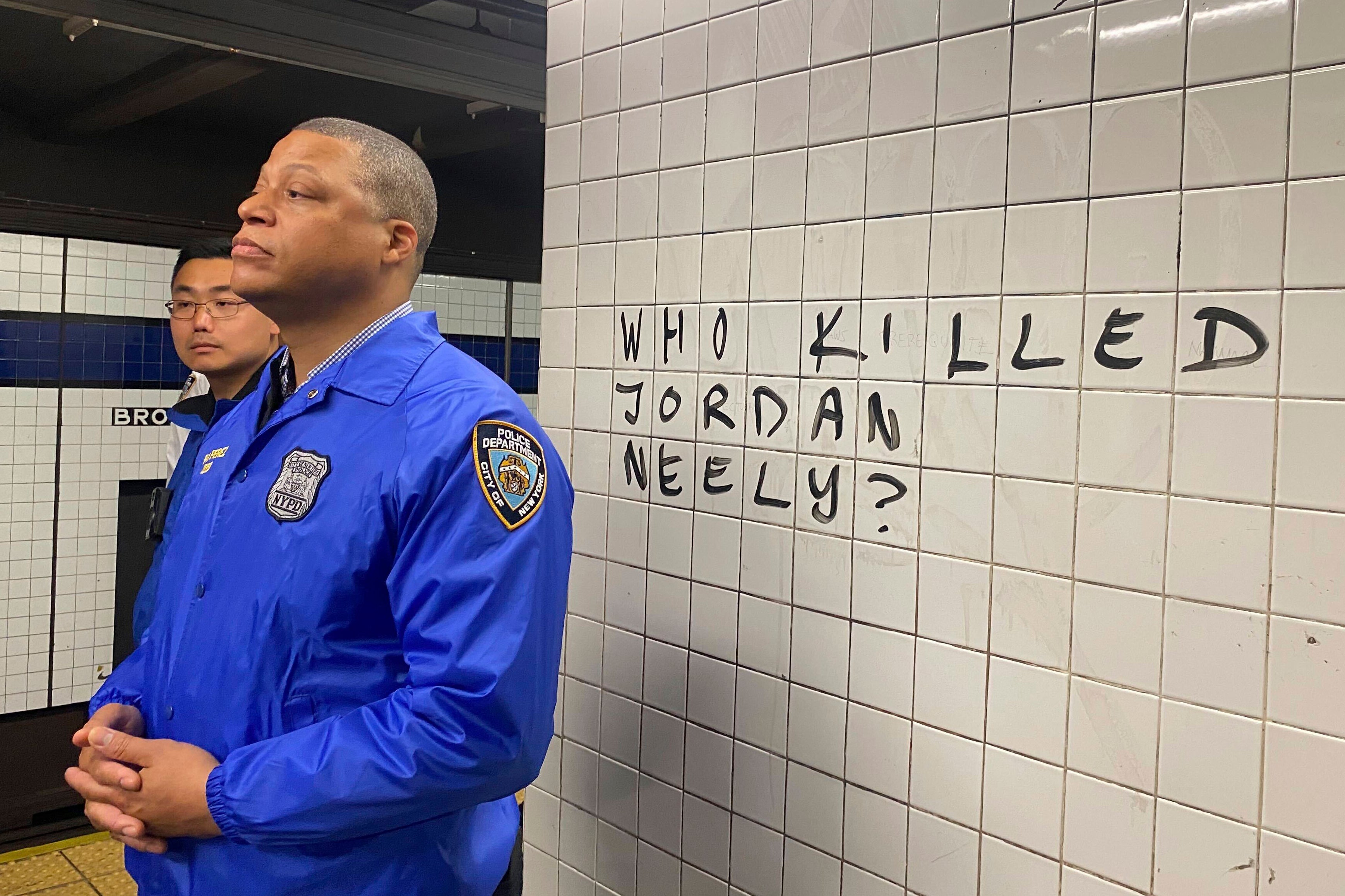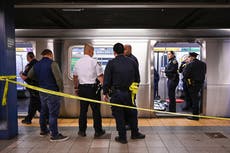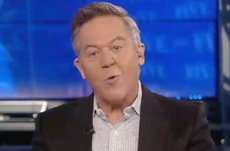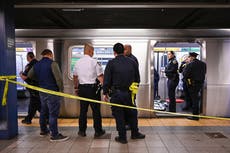New York was not a ‘safe city’ for Jordan Neely
Democratic State Senator Julia Salazar compared his horrific murder to a lynching


Your support helps us to tell the story
From reproductive rights to climate change to Big Tech, The Independent is on the ground when the story is developing. Whether it's investigating the financials of Elon Musk's pro-Trump PAC or producing our latest documentary, 'The A Word', which shines a light on the American women fighting for reproductive rights, we know how important it is to parse out the facts from the messaging.
At such a critical moment in US history, we need reporters on the ground. Your donation allows us to keep sending journalists to speak to both sides of the story.
The Independent is trusted by Americans across the entire political spectrum. And unlike many other quality news outlets, we choose not to lock Americans out of our reporting and analysis with paywalls. We believe quality journalism should be available to everyone, paid for by those who can afford it.
Your support makes all the difference.“We are making our city safer every day,” New York mayor Eric Adams boasted at the end of 2022. Adams has made law-and-order policing a central talking point of his administration, and he has continually claimed that he’s turning New York into a safer city.
After the events of this week, though, it’s clear that we need to ask “a safer city for who?” On Monday, a Black houseless man with a history of mental illness, Jordan Neely, was shouting at passengers on the New York subway. Witnesses said he did not physically assault or harm anyone. But a so-far unnamed white 24-year-old ex-Marine decided Neely needed to be subdued. He put him in a neckhold and, as bystanders watched, he choked Neely to death.
New York was not safe for Jordan Neely. Democratic State Senator Julia Salazar compared his horrific killing to a lynching – the public extermination of a Black, marginalized person in the name of restoring public order.
Though Neely was not killed by the police, his death painfully shows how mainstream rhetoric of policing, order, and safety all frame marginalized people as innately unsafe. From this viewpoint, “safety” means hiding, quelling, or even outright eliminating certain marginalized populations – Black people, homeless people, mentally ill people, poor people.
Conservatives and centrists often attack progressives for not being sufficiently concerned with public safety. “Defund the police” is caricatured as a reckless abandonment of public order. It’s attacked as an unserious, utopian endeavor by people who don’t care about the safety of (supposedly) normal people.
In fact, though, progressive leaders of the defund movement have been very clear that they oppose ballooning police budgets because they make people less safe.
“Many of us can point to the exact moment we realized there is something profoundly wrong with equating policing and public safety,” Mariame Kaba and Andrea Ritchie write in their 2022 book No More Police. They note that many marginalized, Black and brown people have had loved ones assaulted, arrested, or humiliated by law enforcement. Many communities associate police with danger, not safety, because of times “when we called for help and none came; or worse yet, when the cops did come, they came for us.”
Empirical evidence bears these observations out. Black people are twice as likely to be shot by police as white people while engaged in the same level of criminal behavior and when unarmed. Disabled people (like Neely) are also targeted. A half to a third of all people killed by police have a disability.
Police violence against Black and disabled people, and especially against Black disabled people, isn’t an accident. It’s the result of an ideology embraced by reactionaries and public officials that frames marginalized people as a threat to be contained, erased, and disposed of.
Eric Adams has been particularly aggressive in dehumanizing and targeting unhoused people. At the end of last year he told the New York Police Department to “involuntarily transport” anyone experiencing an acute mental health crisis to hospitals, even if they were not a threat. That’s an extremely dangerous policy considering the high levels of police violence against the mentally ill. At the same time, Adams ramped up police on subways, while slashing homeless services.
Given Adams’ disdain for unhoused people, it shouldn’t be a surprise that he has been slow to condemn Neely’s murder. Instead he vacillated, saying “Any loss of life is tragic”.
New York Governor Kathy Hochul’s statement was even worse. After pointing out that many homeless people are “in the throes of mental illness” she said: “There’s consequences for behavior.” That’s a direct justification for killing someone who is acting erratically on the subway.
Public officials and media fearmonger about skyrocketing crime rates (crime rates are not, in fact, skyrocketing). They demonize unhoused people. So it is not a surprise that police feel empowered to use excessive force. And it’s not a surprise that, in the name of safety, some members of the public take matters into their own violent hands.
“Of course you’re gonna have individuals deputizing themselves, thinking that this is the response,” Adolfo Abreu of grassroots housing justice organization VOCAL-NY told The Intercept. “Because our leaders are saying, ‘Hey, there’s so much rampant violence, and homeless folks are a nuisance.’”
Mentally ill people, homeless people, and marginalized people aren’t innately a threat merely by existing. But because their existence is seen as a threat, they are themselves often in serious danger. That danger may come from the police. It may come from civilians eager to call the police. And it may come from vigilantes who want to do some violent policing themselves.
Real public safety would mean making sure that everyone in our communities and our nation has a place to live and the health care they need. It would mean treating each other with respect and care, rather than responding to every mental health crisis with guns and chokeholds. It would mean less police, and less violent policing, by the state and by individuals. It’s past time that we start listening to progressives when they call for this broader notion of safety – one that includes the safety of people like Jordan Neely.


